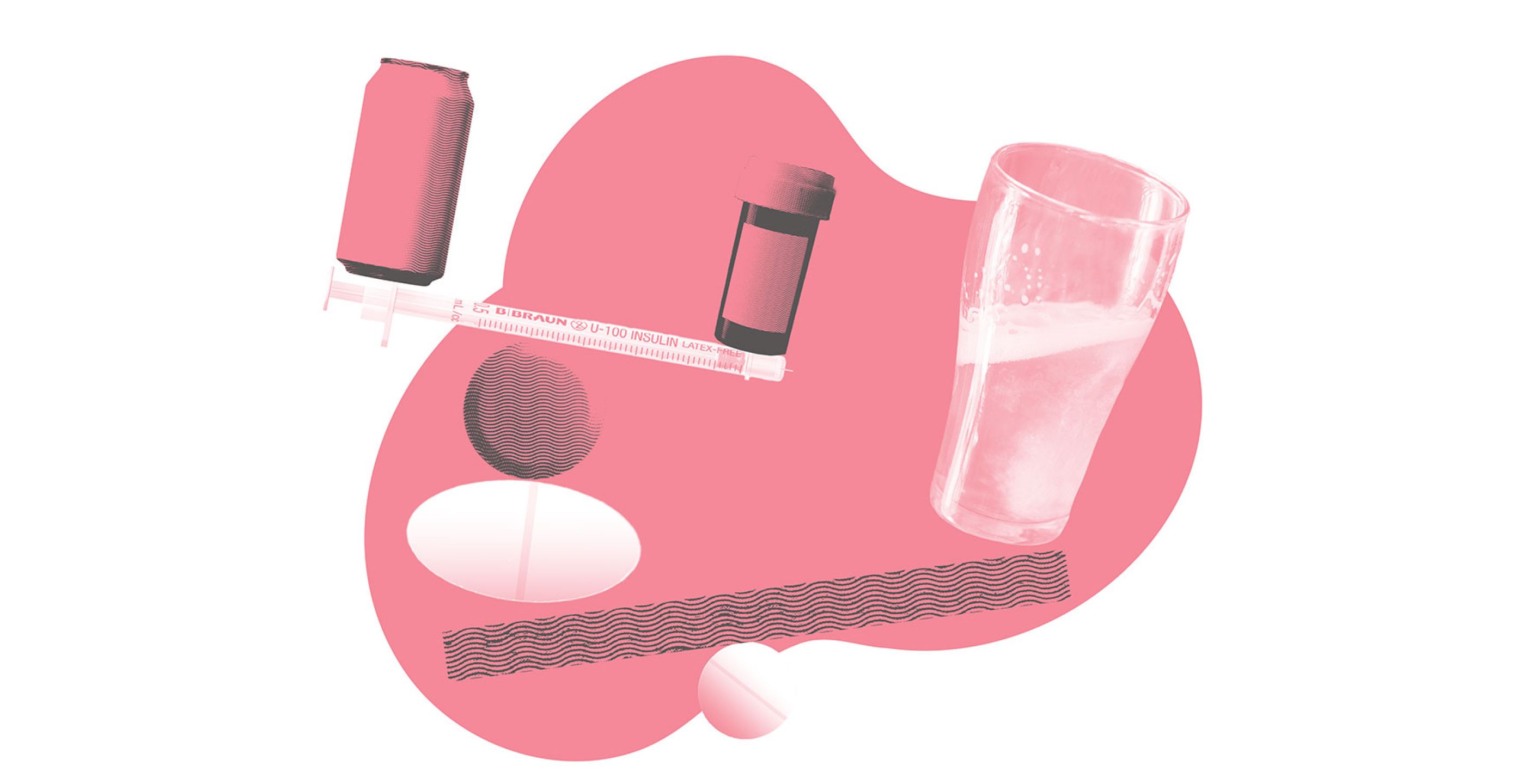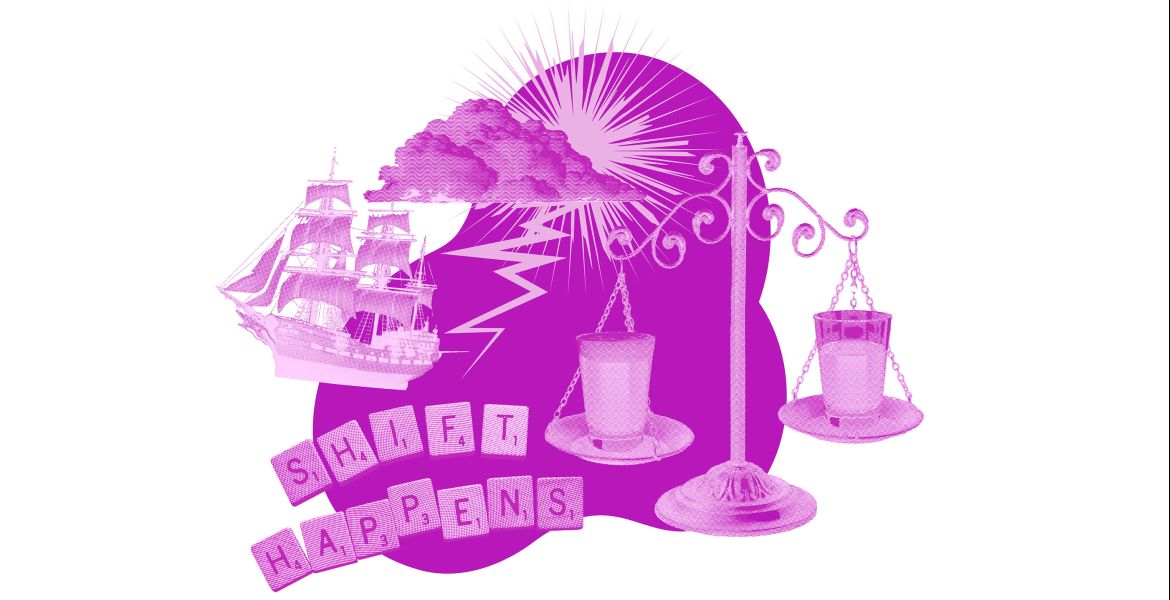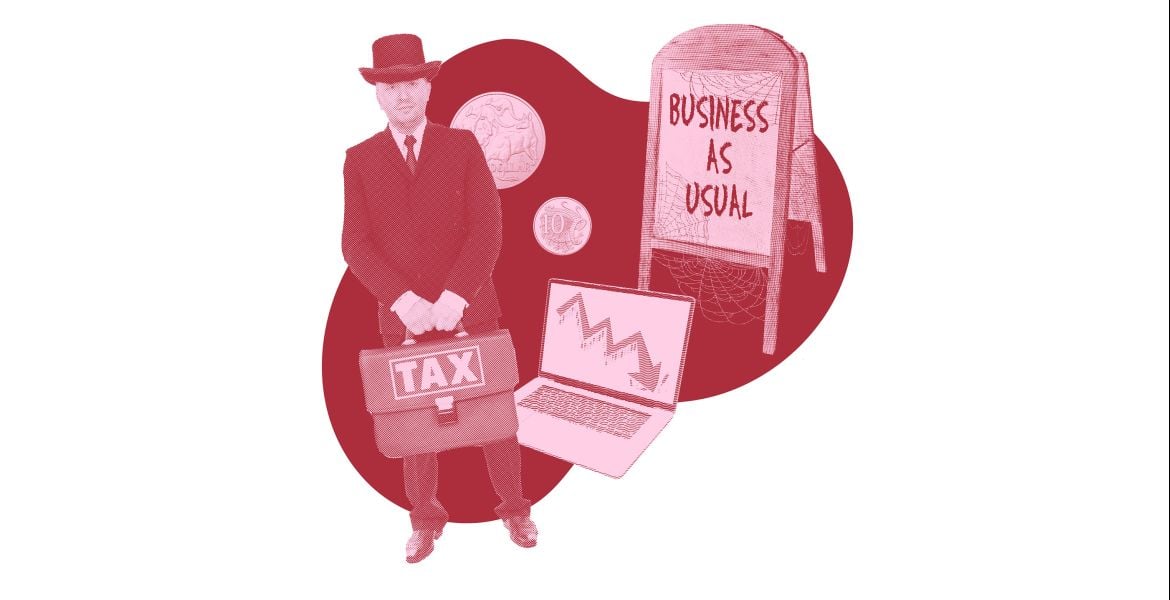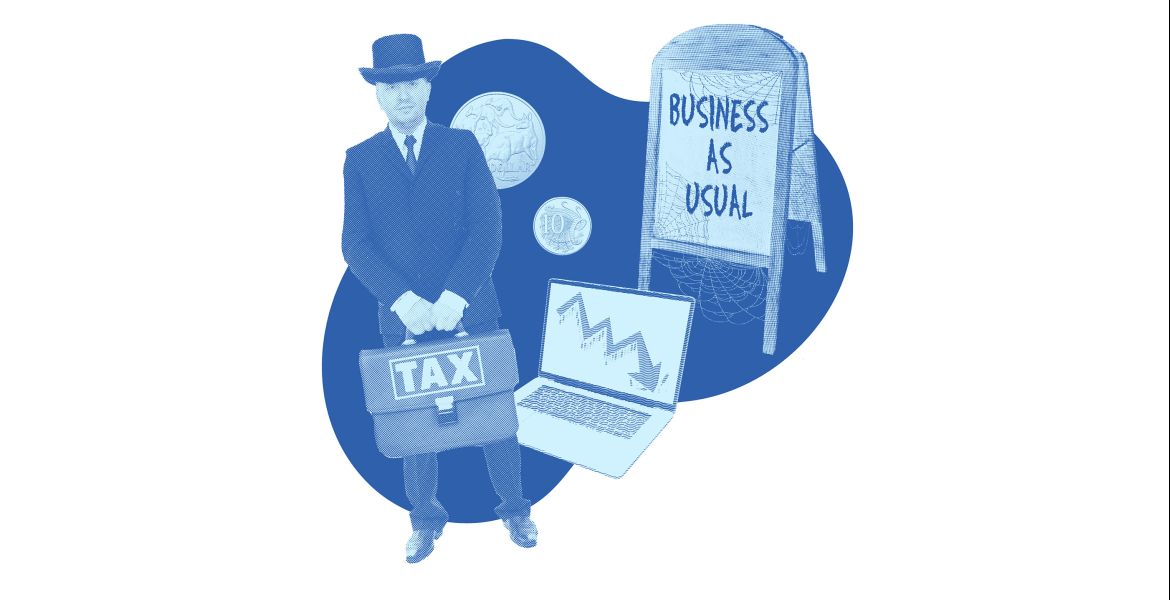I walk into a beer festival and the first thing I do is give myself insulin. I think about how much I’m likely to drink in the next couple of hours and dose based on that. An alarm on my phone starts going off if my blood sugar goes too high or too low; if it’s the former, it’s time for more insulin.
I head to a pub with a few others for more beers (and more insulin) before heading to Chinatown for a late meal, which means dosing again while thinking through how long this complex mix of succulent fried food will take to digest.
The last thing I do before going to bed is check my blood sugar again: it’s a little high but the alcohol still in my system will drop my levels overnight so I do nothing. I wake up, my blood sugar is perfect, and I look through how it went across the previous day and see a graph that almost resembles a flat line.
Managing type one diabetes with beer is easy.
I’m at BrewCon and I navigate my sugars through the meals out easily enough but, ahead of hosting a panel, it starts to rise suddenly and I can't work out why. I don’t feel even slightly nervous but I must be; stress hormones can raise your blood sugar and I walk into the panel with the largest bottle of water I can find, keep my fluids up, and hope it doesn’t keep rising.
It does, and while I have time to give myself more insulin later, the horse has bolted and my sugars remain hard to tame for the rest of the day and all night.
Managing type one diabetes with beer is a nightmare.
Living with a chronic medical condition – one I’ve had for around 25 years – is constant. Even when things go perfectly, the many decisions I make each day feel like walking a tightrope that isn't visible to anyone around me.
Chronic conditions are broadly defined as health issues that last more than a year and management doesn't just mean medication: it takes a lot of appointments, knowledge, time and money to look after yourself. Often they're invisible, and it can be hard to explain what it's like living with one so people around you understand.
There's a lot to navigate and working in an industry fuelled by passion, where businesses are often run on a shoestring and where alcohol is omnipresent, doesn't always leave time out for self-care. But in an industry that does still talk about being a community, there's a lot of opportunity for open discussions about health and well-being.
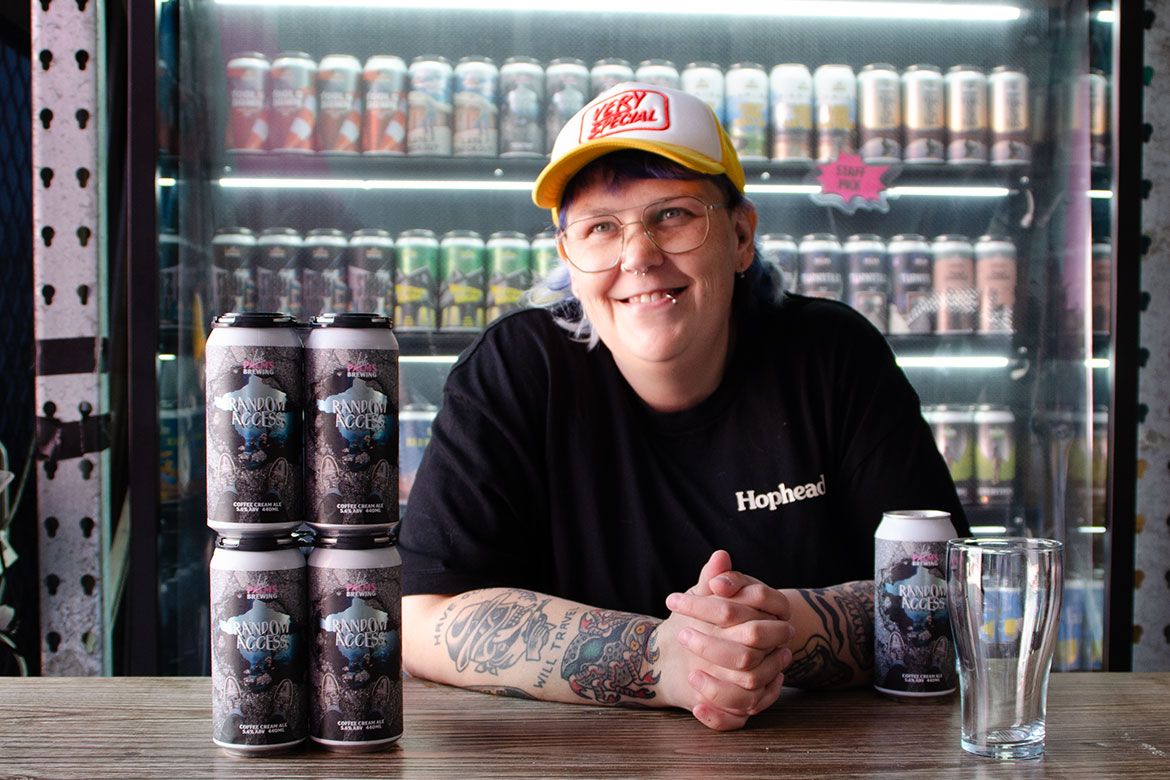
Close to three years ago, aged 35, Amanda Baker (pictured above) was diagnosed with ADHD. Better known as Bakes, the marketing manager at Lost Palms says they made sure they were open with the brewery team about their diagnosis as they applied for the job.
“It’s one of those things that if you're open about it and people know, it's easy to maintain,” Bakes says.
“At Lost Palms, I’ve been very open about it because there are certain accommodations people need.”
ADHD, or attention-deficit/hyperactivity disorder, is often a condition often associated with hyperactivity, difficulties paying attention and being impulsive. There can be a tendency to draw a simplistic caricature of what’s a complex condition: the kid in class who can’t sit still and listen to their teacher, for example. But it presents in a variety of ways.
“For me, I have a really hard time regulating my emotions,” Bakes says. “It can present itself as someone being a bitch but, really, they’re just completely overwhelmed and don’t know how to self-regulate.
“I make sure that I’m taking care of myself and fostering relationships [at Lost Palms] because ADHD is all-encompassing; it’s anger, stress and anxiety.”
Bakes says it means they sometimes need a time out, a moment away from the hectic reality of working in a brewery. And it's a need their colleagues understand and support.
“Sometimes I have to go in a different room because it's too loud and my noise-cancelling headphones just aren't strong enough,” Bakes says.
“I might go for a walk but mainly for me – I just need to stop for a few minutes. I’ll just lay under my desk for ten or 15 and then people will just walk around me and then, when I'm back up in my chair, then they'll go ‘OK now, where were we?’"
It can see Bakes become chronically overwhelmed, which has in the past resulted in them being hospitalised. But Lost Palms ensure they have a range of accommodations to help Bakes work at their best, like adjusting work hours to avoid spending too long in the venue during moments when it’s full of customers.
“On Fridays, when the venue is open from 12pm, it’s really fucking loud in here,” Bakes says. “There are people coming up the stairs, people shouting downstairs, and music, so it would get to the point where, on a Friday, I’d get close to having a meltdown.
"So now on Fridays, I start from 7am and I’m gone by the time it starts to kick off.”
Bakes reflects on how, throughout their career, they’ve tended to throw everything at their work; it's an approach that suits an industry where people often have to wear many hats but which can also pose a risk.
“I’m on the canning line, in the brewhouse, doing sales and events,” Bakes says. “But you kind of get past that point of no return where it ends up being detrimental to my health.
“It’s good for the business and it’s good for me initially because I’m constantly motivated, but it will lead to my demise.”
Working at Lost Palms doesn’t just allow them certain accommodations they need, however: the brewery team has also supported them by showing a desire to learn and understand.
“[They’re] open to learning and acknowledging that not all employees are the same and we each need something different to succeed.”
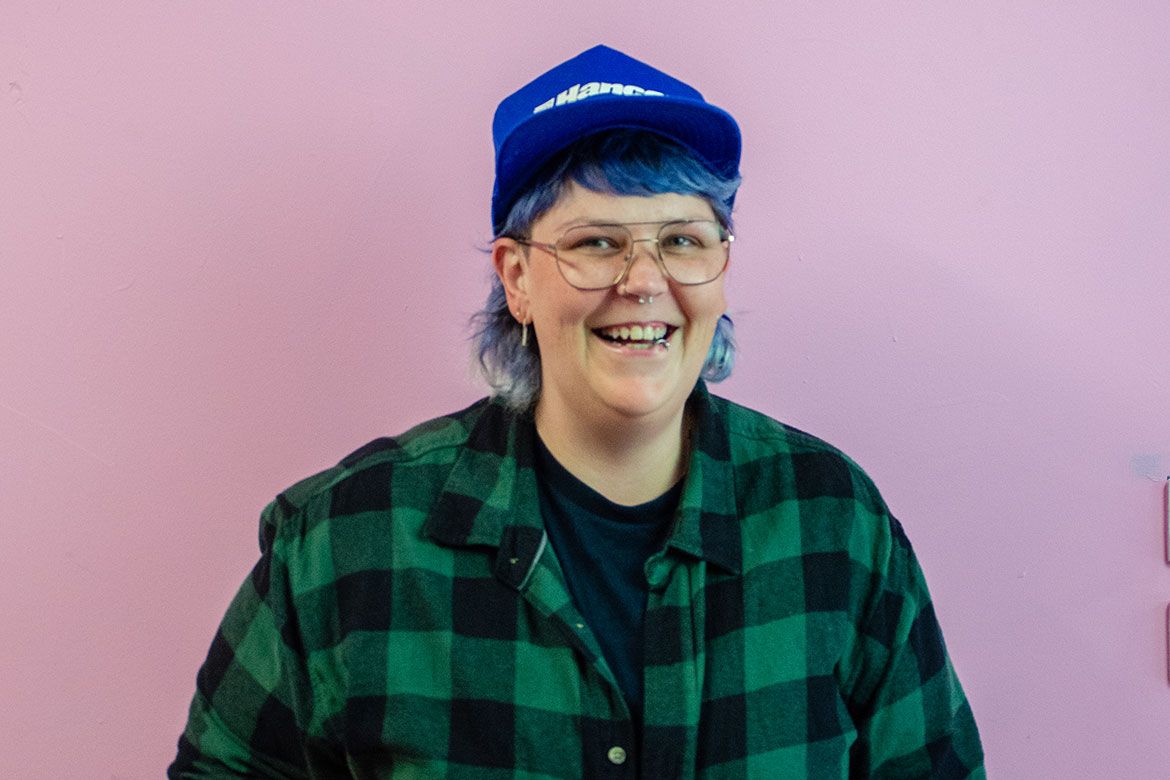
Working in craft beer also means being surrounded by alcohol; Bakes points out that there's a higher risk of addiction for people who are neurodivergent, the broad term for a wide range of conditions that includes autism spectrum disorder, obsessive compulsive disorder and many others.
“A lot of people who are neurodivergent – whether it's ADHD, bipolar, autism – they do struggle with the addiction side of things,” Bakes says. “Which makes it a little bit harder to work in the alcohol industry.
“It can be used to slow your brain down, help with managing emotions and anxiety, and easing the side effects of the condition.
“So, finding yourself within an industry built around alcohol involves a lot of work and self-reflection.”
With alcohol in the mix, it can also be easy to assume that what someone’s going through on a personal level is fuelled by booze. And my own experience is a good example of this.
My body can’t produce insulin so I need to give it to myself, but too much and my blood sugar drops to a dangerous level. The brain needs a constant source of glucose to function: take it away and you can start slurring your words, lose your ability to put a comprehensive sentence together, or become aggressive or scared due to the sense that you’re losing your grip on the world around you. In other words: it looks a whole lot like being drunk.
In my case, the symptoms tend to be physical: I shake, I sweat and the colour drops from my face. Mostly, those symptoms come first and I have time to do something before the confusion kicks in.
For people who are neurodivergent, however, personality and symptoms can be considered one and the same.
“Most of the time, symptoms come across as weird, or out of the ordinary,” Bakes says. “People can be defined by these symptoms and labelled as problems, or emotional, or painted in a negative light for something that is so far out of their control.
“They might see a person as trouble but, essentially, they’re just trying to get through whatever’s happening.”
Bakes says there can also be an assumption that chronic health conditions aren’t that big a deal. People can often draw on vague understandings of autism spectrum disorder or OCD plucked from pop culture to describe people they think are a little odd.
“It’s a chronic, defining disorder that can disrupt people’s lives."
Despite chronic being in the name, it’s hard to get across how constant that feels. In my case, a wristwatch continually tells me if my blood sugar is too low or too high; it’s great technology that I’ve only had access to for a couple of years and makes life easier. But somehow, something I've had for as long as I can remember is ever more present, and the insulin pump attached to me is a visible reminder that my body doesn't work properly.

Preparing for beer events is something that takes a lot of time and energy for Bakes too, as they need to go through everything with a fine toothcomb.
“It’s about being too prepared; I need to know where it is, when I have to get there, who I'm talking to, and I need to plan it out meticulously,” they say.
But larger events can remain difficult. Bakes can pinpoint a moment during BrewCon when they felt overwhelmed. It was during the welcome drinks event: they’d lost the mate they came with and felt stuck, working through the options of what to do next.
“I was just standing there and I'm like, it's so loud,” Bakes says. “There are so many people. I feel like I'm stuck, I can't move, I don't know what to do.
“That’s no one’s fault, it was just very, very loud and it kind of gets to a point where I’ll go, ‘God, I don’t think I can handle it anymore.'”
As they were looking to leave, they were approached by a friend who recognised they were going through something and came to support them.
“They took me for a walk around, introduced me to some people, and then I found some of my good mates and the night continued on.”
It's a moment that highlights how important one side of the beer industry is: the people.
“I feel in the industry it's a close enough community that people will pick up on that. If it wasn’t him, it would have been someone else.”
For me, any plate of food resembles a plate of maths: how many carbs are there, how much insulin do I need, and if we’re at a beer event, is it likely any more food is coming?
The same mathematical approach applies to beer, where I think of each beer by its carbohydrates and ABV and quickly think them through. It’s easier than you might think, though. The advantage of a chronic condition is having time to learn and to do things over and over (without opening a can of worms, nutritional labels would help here).
But it still means time out and requires advanced planning beyond filling my pockets with lollies and a machine that keeps me alive. Is there going to be food there? Are they likely to change what food is coming out? Will we walk to the next brewery or get an Uber?
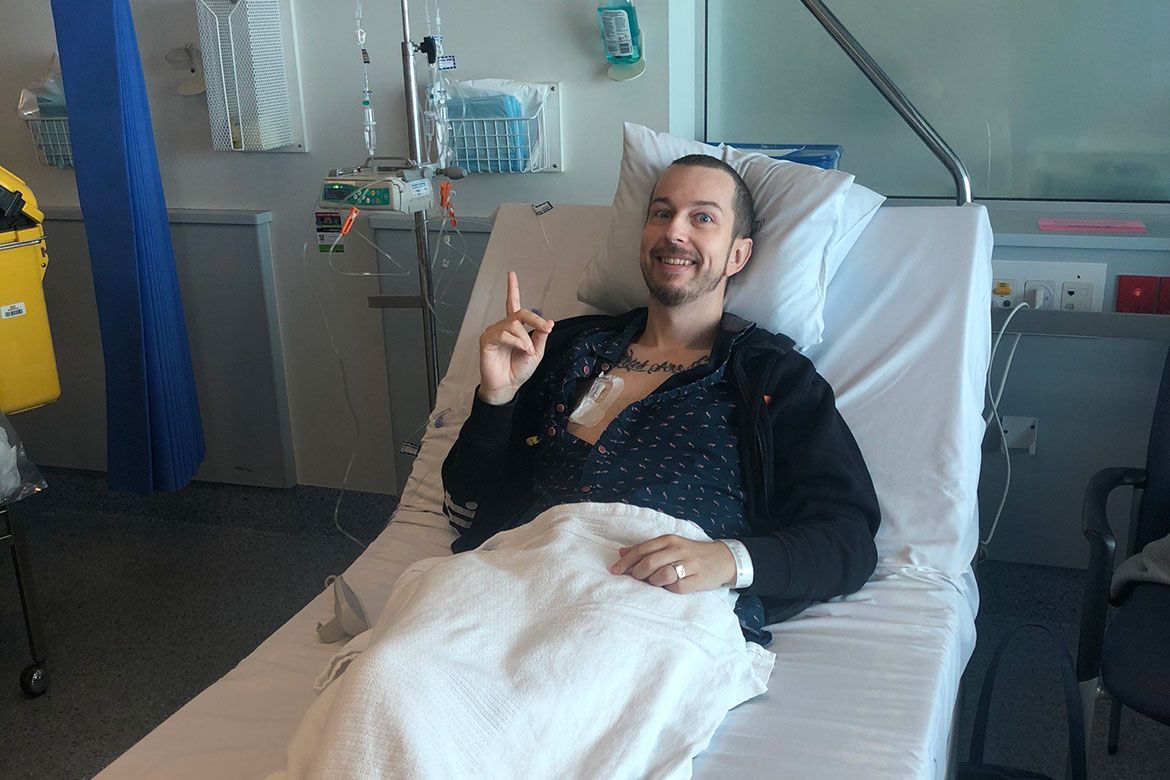
Ben Boorer, co-founder of Seeker Brewing, needs to plan ahead of events too. Ben heads sales and marketing for the Wollongong brewery, while also slinging beer for other indie breweries in Brisbane where he lives.
In October 2019, just weeks before his first child was born, Ben was diagnosed with stomach cancer.
“I found out that I would probably be pushing it to live another 12 months,” Ben says. “I started chemotherapy about two weeks after finding out – it all happened really fast.”
At 33, his medical team went hard on chemotherapy and, while it worked quite well, it was just the start. In February 2020, he had his whole stomach and part of his oesophagus removed, with the surgery taking some ten hours. A month after that, Ben then underwent more chemo as a precautionary measure, which he did while still working.
“I kept selling beer the whole time,” Ben says.
“My cycle was fortnightly, so it was sort of four or five days of feeling pretty crook and then a good week of going out and selling beer.”
That decision to keep selling beer was both a desire and a need.
“It was definitely a distraction,” he says. “But being an owner of a business, I didn’t want to lose traction. It’s hard to get on those bottleshop shelves and there’s plenty of breweries out there fighting for space.”
Today, Ben is cancer-free and, although he’s open about his experience and even details it on his no_stomach_adventures Instagram account, few people in the beer industry would know about his diagnosis or treatment.
While he does enjoy showing off his impressive scar, at the same time he’s careful about who he tells in the industry. He works closely with a relatively small number of places and doesn’t want it to feel like anyone’s taking pity on him lest it gets in the way of building a legitimate working relationship.
Although happily cancer-free and always positive, Ben still needs to put in extra work to look after himself. For a good year after surgery, he barely drank and, while he does now, he's careful with how much.
“Being a sales and marketing guy,” he says, “I need to try a lot of beers; I need to test our product when it arrives from Wollongong, but then I also need to see what other people are doing in the market.
“I still spend a lot of money on beer but I’m sometimes drinking 100mls out of 440ml cans."
In the lead up to running events, he makes sure he drinks plenty of fluids so he's ready to tackle the workload – and the alcohol that comes with beer events.
“I do prep myself and drink a load of coconut water as a way to hydrate if I’m going out for an event or something like GABS,” he says.
Having lost a lot of weight – going from around 90 kilos to 70 – he's lost a lot of muscle and iron deficiency can leave him feeling exhausted quite quickly.
“I’m iron deficient and a guy who lifts kegs for a living," he says, "and they weigh about as much as me.”
To treat the deficiency, Ben receives a B12 booster shot every three months. On top of that, there are six-monthly checkups with his oncologist as well as separate appointments with his surgical team. Such a steady stream of appointments is a reality for anyone with longterm health requirements; the specialist who supports my diabetes management doesn't have space for at least the next six months each time I book, and then there are the nurses and a suite of allied health professionals.
It took Bakes nearly a year to get an appointment when they moved to Queensland to take the job with Lost Palms. That’s a long wait for medication and has been followed by other frequent appointments that eat into work hours. Again, Bakes points to why it’s so important to have clear communication between employees and employers as well as a workplace set up to understand.
“There’s enough respect in the business to know that I’m not taking the piss,” Bakes says.
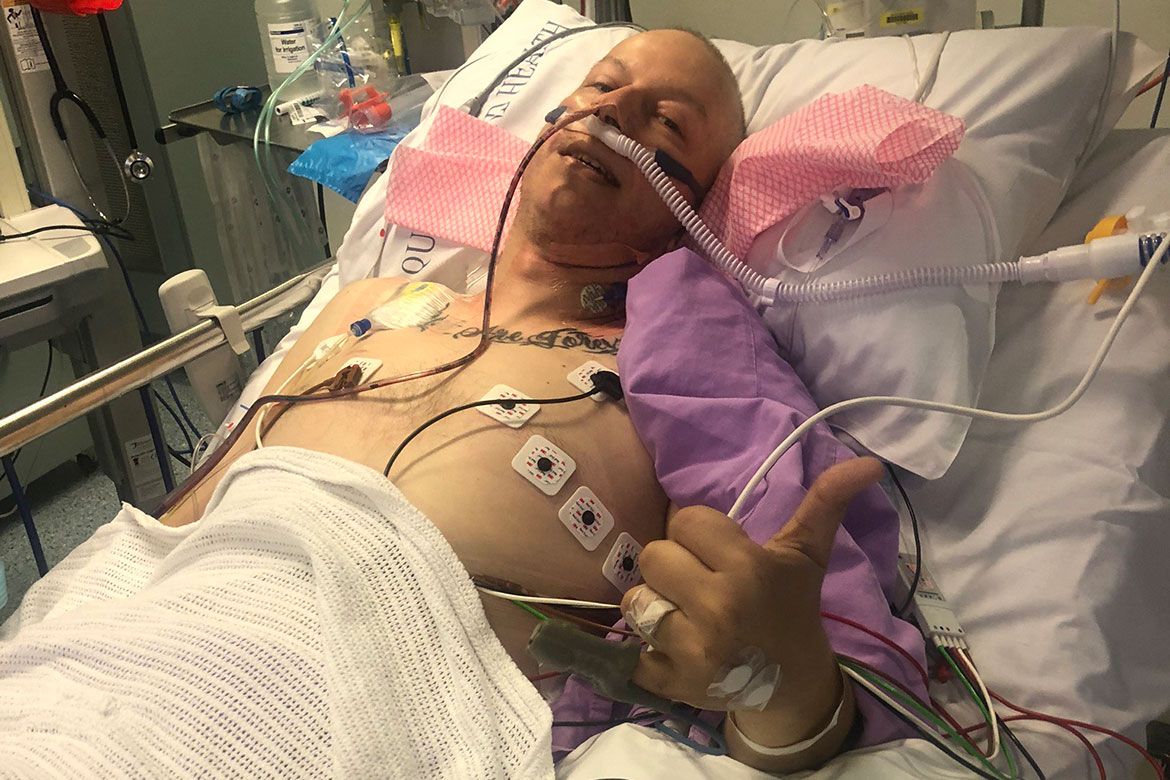
Working in beer often involves blending your personal life with the professional.
“The beer industry sometimes is all-encompassing," Bakes says. "You live and breathe it 24/7, even if you don't want to.”
As such, you might imagine working with a longterm health issue in such an industry would be a case of an unstoppable force meeting an immovable object. How are you meant to find time to look after your health if you're working in an industry that, by its nature, doesn't automatically prioritise it?
Yet Ben points to the flexibility in the hours he works, which allows him to go straight from an oncology appointment to his first bottleshop visit of the day.
“The positive for me is how flexible the industry can be with different roles,” he says. “With me being a sales rep who delivers, I can work the hours that I want to work. If I’m a bit iron deficient on a certain day, I can go home and pump out some emails and phone calls to get the orders in for next week.”
Ben also highlights something else his shock diagnosis has given him: a lot of optimism.
“Getting sick actually gave me the confidence to take a risk to really run my own business,” he says. “The old me would have happily kept working for someone else.
“I have a motto of, 'Keep smiling and keep looking forward'.”
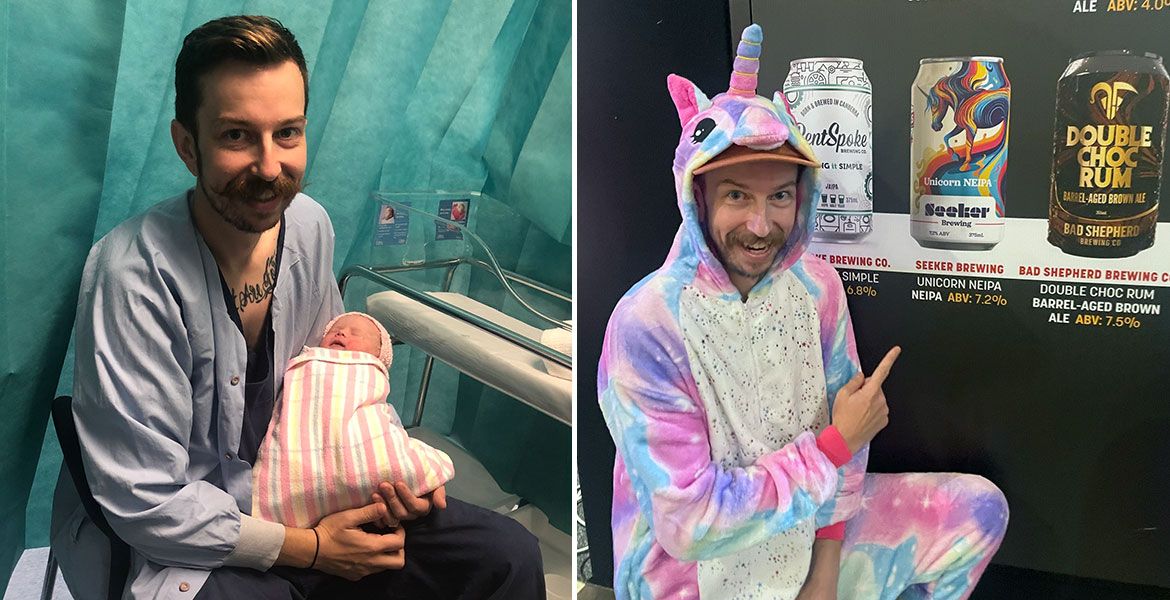
For the most part, he believes the beer industry also remains a place in which competitors don’t act like they're in competition.
“I’ve found myself in a good rep circle where I hang out with reps that are open-minded and supportive of me,” he says. “Some of them sometimes go, ‘Let me get that keg out of the van for you.’
“I’ll let people do it for me because sometimes I am on my own lifting nine kegs into a ute or van and absolutely busting myself.”
Bakes says that, as the industry continues to evolve, now is a good time for people to talk openly about their health as it can help create an environment that's more inclusive.
“There are limitations, but we are so open and we’re getting the opportunity to talk more openly,” they say. “We can ask for accommodations and people are learning about the individual needs of people.
Having appeared on a panel discussing diversity during BrewCon, Bakes feels there is an eagerness to learn, it's just that in many cases people just don’t know what to do. In the same way that creating a more diverse and inclusive beer industry will make for a better industry, when it comes to chronic health, making the invisible more visible can also foster a better industry.
“Anytime that I talk to someone, or I explain an experience that I've had, hopefully it clears the way for someone else further down the track,” Bakes says.
“Being in a position where you can be open about it and, hopefully, help someone else along the way is something I always look at it as a positive thing.”
Bakes says having neurodivergent people in the workplace should be thought of as an asset to a business too.
“You're never going to go backwards if you give someone with ADHD a free-thinking role to go and do whatever they want,” they say.
“It is an industry where creatives flourish: there’s always new things to do, there's always a new way to do things and new environments. I know a bunch of people who have either ADHD or autism or both who are in the industry. And the reason they do so well in it is because they've got the opportunity to do different things, and it is an industry that asks for people who can think outside the box.”
And, for such people to succeed, these conversations need to happen.
“I think someone just has to start that fire and it'll spread," Bakes says. "It’s 2023 and we need to be more accommodating, not just as an industry but as a society."



